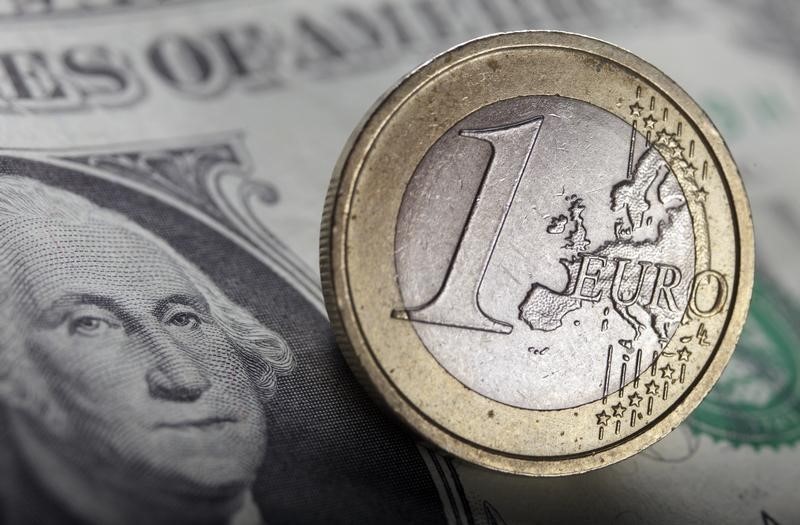Investing.com -- The dollar rose to a three-week high against the euro in early trading in Europe Friday, after another disappointing set of factory orders in Germany encouraged bets that the European Central Bank will ease policy aggressively at its policy meeting later this month.
At 2:45 AM ET (0645 GMT), the euro was at $1.1272, down some 0.1% from late Thursday and its lowest since June 20. The euro was also slightly lower against the British pound, which nonetheless remained under pressure against a backdrop of lingering concerns about Brexit.
The dollar index, which measures the greenback against a basket of developed-market currencies, was close to a three-week high at 96.42.
New orders to factories in the euro zone’s largest economy fell 2.2% in May, in contrast to a consensus forecast of a 0.4% increase. That came after two modest monthly gains had fostered hopes that the worst of the economic slowdown may have passed.
Such hopes are no longer shared by the European Central Bank, if they ever were. Bank of Finland Governor Olli Rehn said in an interview published on Thursday that the slowdown was not a “temporary dip”. The yield on the German 10-year benchmark government bond fell to a new record low of -0.41% in response, below the ECB’s deposit rate of -0.4%.
In Asia overnight, the dollar had also risen to 1,171.72 against the Korean won after a disappointing earnings report from electronics giant Samsung (KS:005930) showed the effects of both the U.S.-China trade war and an ongoing dispute between South Korea and Japan over the treatment of Koreans by the Japanese occupation forces in World War II.
Trading later in the day is set to be dominated by the release of the monthly U.S. labor report. Employment is expected to have risen 160,000 in June, a rebound from the meager 75,000 gain in May but still below last year’s average. The unemployment rate is expected to have stayed at 3.6%.
Should the data be weaker than expected, market participants are likely to increase their bets on the Federal Reserve cutting interest rates at its next policy meeting later this month.
